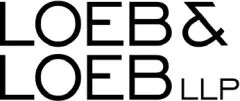- within Intellectual Property topic(s)
- in United States
- within Intellectual Property, Employment and HR and Real Estate and Construction topic(s)
As artificial intelligence (AI) becomes increasingly embedded in product development and business operations, in-house legal teams are facing new and nuanced challenges at the intersection of intellectual property law and AI. As part of Loeb & Loeb's AI Summit on July 10, 2025, the firm facilitated roundtable discussions with representatives from companies navigating these issues daily. We explored key developments and practical considerations that should be top of mind for corporate counsel managing AI-related innovation strategies.
Here are some of the key patent-related takeaways from those discussions:
- So far, the U.S. Patent and Trademark Office and the Federal Circuit have largely treated AI innovations as an extension of traditional software inventions. This means that existing strategies for software patentability still apply to AI-related inventions. However, understanding the specific technical advancements of your company's new AI-related innovations will be critical to patentability.
- As the patent framework around AI matures, we expect more AI-specific findings that will help guide AI innovators regarding when and how to seek patent protection. For now, decisions should be made on a case-by-case basis.
- AI tools are becoming a part of an innovator's everyday toolkit and will only grow in their involvement with the innovation process. It will be increasingly important for legal teams to work with inventors to track where the human inventor's contributions end and where AI contributions begin.
Overall, the legal landscape around AI and patents is still in flux. While some broad guidance is emerging, many questions remain unsettled. Legal teams should stay proactive in monitoring additional developments and develop internal protocols with technical teams for assessing patentability and inventorship early in the innovation process.
The content of this article is intended to provide a general guide to the subject matter. Specialist advice should be sought about your specific circumstances.


